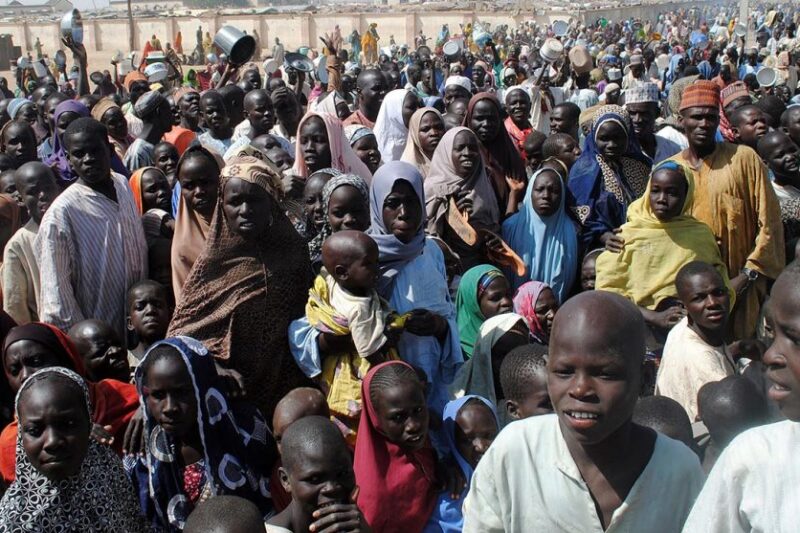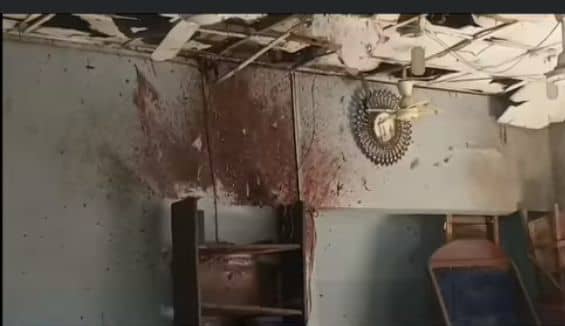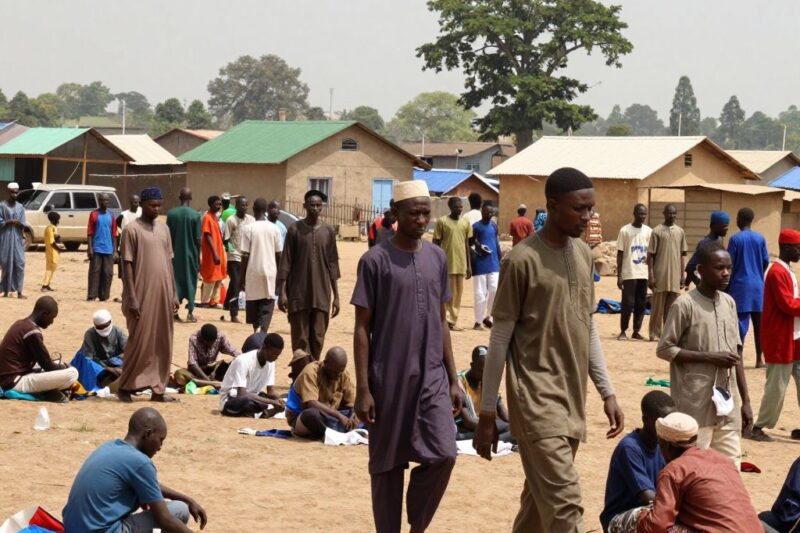Some internally displaced persons (IDPs) in Maiduguri have already started packing up their belongings to meet the December 31 deadline set by the Borno State government for their evacuation from all camps in the city.
The IDPS from the Gwoza Local Government Area, Marte and many inside Bakassi Camp were preparing to leave but, they said, attacks by insurgents were still occurring in some communities.
RNI reporter Nana Khadija Mustapha visited Bakassi and saw many people were gathering their belongings and packing up. Some were destroying the temporary shelters provided.
Falmata Umar, a resident of Bakassi, said: “I would have preferred to be have been given a site where I could settle until things return to normal in my home town.”
She said one of the problems the IDPs faced was that they did not have any means to transport their belongings.
She had not received the money that the government had promised to give IDPs, so she said she would watch and wait for the government’s assistance before leaving the camp.
Modu Modube said he was packing to leave for the Monguno Local Government Area where he lived before being displaced. He said he had to abide with the directive of the government to leave the camp.
“Right now I am packing my belongings. I will store them in Maiduguri before I leave for Monguno tomorrow. As IDPs, whether we like it or not, because the state government has directed us to leave Bakassi, we have no other option than to abide.”
He said he did not know what he would face when he returned to Monguno, considering the insecurity, joblessness and other challenges in the area.
Doma Abba said: “I don’t know where to go when I leave this camp. Maybe my husband will find something else but right now there is nowhere to go.”
Adam Ali said he did not want to be humiliated by being thrown out of the camp by the government. He said he had nowhere else to go and hoped the government would change its mind so that he could return to live in the camp.
“I have nowhere to go but if I remain, the government might throw out our belongings. So, for now, I am preparing to leave just to avoid such a scenario.”
Most of the IDPs told RNI that they did not feel comfortable about returning to their communities and said they were uncertain about their safety.
Borno State was one of the worst states affected by the Jamā’at Ahl as-Sunnah lid-Da’way Wa’l-Jihād (JAS) insurgency, which had resulted in an influx of internally displaced persons into all 27 local government areas of the state.
On October 22, Borno State governor Babagana Zulum reiterated his intension to close internally displaced persons’ camps in Maiduguri by the end of December.
After a closed-door hearing with President Muhammadu Buhari, he told journalists that the decision to close the camps was informed by the recent improvement in the security of the state.
The International Centre for Investigative Reporting (ICIR) quoted Zulum as saying: “So far so good, Borno State government has started well and arrangements have been concluded to ensure the closure of all internally displaced persons’ camps that are inside Maiduguri on or before December 31,”
He said the government decided to close the camps to enable internally displaced persons to return to their ancestral homes.
Zulum said the Borno State government had already ensured the resettlement of IDPs who were living in Diffa Province in Niger to stay in Malumfatari, an unoccupied local government area in Borno where no one was living because of the insurgency.
He told journalists that arrangements had also been made for the safe return of Nigerian people who were displaced in neighbouring Niger and Cameroon.
AISHA SD JAMAL








